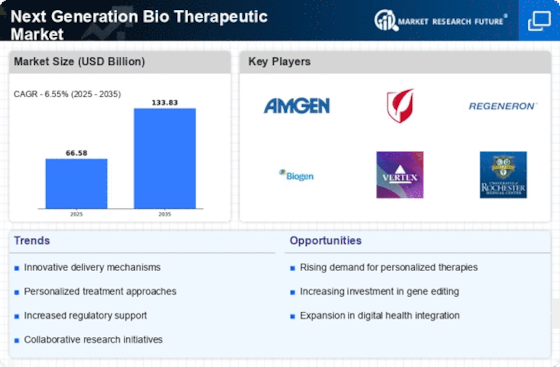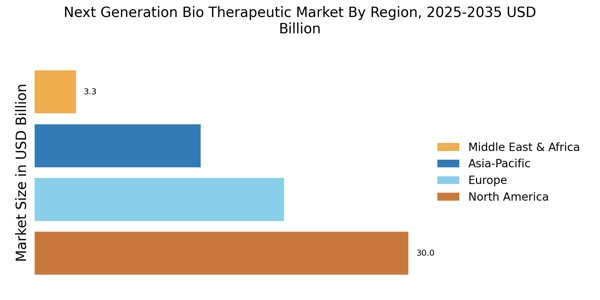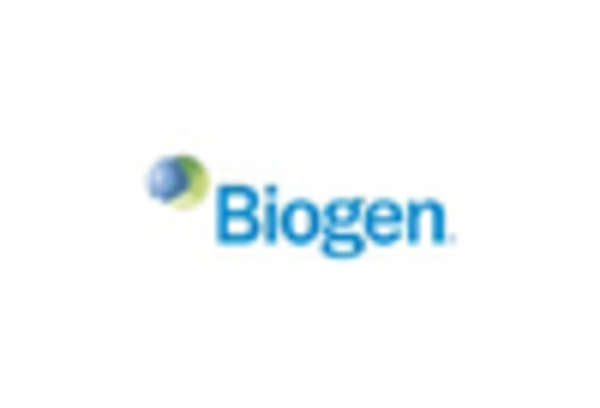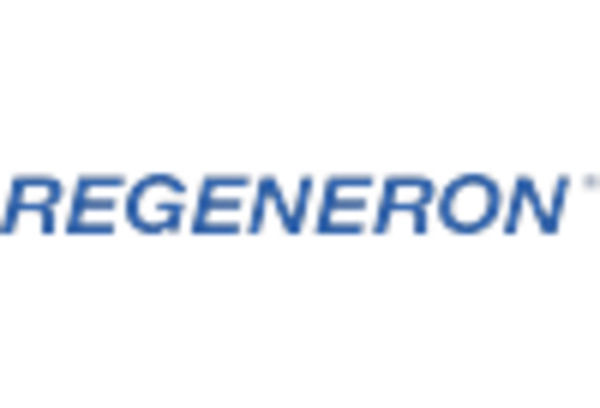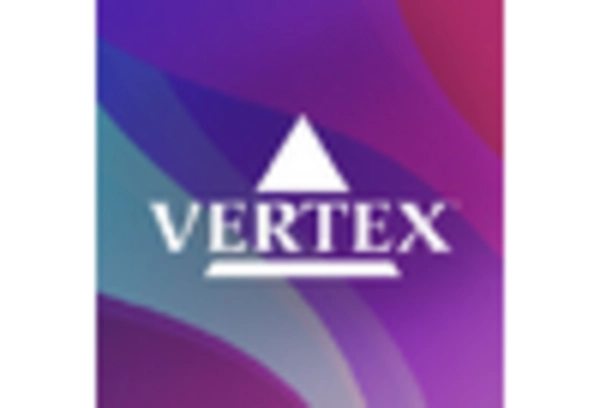Advancements in Biotechnology
Technological advancements in biotechnology are significantly influencing the Next Generation Bio Therapeutic Market. Innovations such as CRISPR gene editing, monoclonal antibodies, and cell and gene therapies are revolutionizing treatment paradigms. The Next Generation Bio Therapeutic Market is projected to reach over 700 billion dollars by 2025, indicating a robust environment for biotherapeutic development. These advancements not only enhance the efficacy of treatments but also reduce the time required for drug development. As a result, biopharmaceutical companies are increasingly focusing on harnessing these technologies to create next-generation therapeutics that can address unmet medical needs. This trend is likely to foster a competitive landscape, driving further innovation and collaboration within the industry.
Rising Prevalence of Chronic Diseases
The increasing incidence of chronic diseases such as diabetes, cancer, and cardiovascular disorders appears to be a primary driver for the Next Generation Bio Therapeutic Market. As healthcare systems grapple with the burden of these conditions, there is a growing demand for innovative therapeutic solutions. According to recent estimates, chronic diseases account for approximately 70% of all deaths worldwide, underscoring the urgent need for effective treatments. This trend is likely to propel investments in research and development, fostering the emergence of next-generation biotherapeutics that offer targeted and personalized approaches to disease management. The market is expected to witness substantial growth as pharmaceutical companies pivot towards developing therapies that address these pressing health challenges.
Increasing Demand for Personalized Medicine
The shift towards personalized medicine is a significant driver for the Next Generation Bio Therapeutic Market. Patients are increasingly seeking treatments tailored to their unique genetic profiles, which has led to a surge in demand for biotherapeutics that can provide customized solutions. The personalized medicine market is projected to reach over 2 trillion dollars by 2025, reflecting the growing consumer preference for targeted therapies. This trend is prompting biopharmaceutical companies to invest in the development of next-generation therapeutics that leverage genetic and molecular insights. As the industry adapts to this demand, it is likely to witness a transformation in treatment approaches, with an emphasis on precision and efficacy.
Regulatory Support for Innovative Therapies
Regulatory bodies are increasingly providing support for the development of innovative therapies, which is likely to benefit the Next Generation Bio Therapeutic Market. Initiatives aimed at expediting the approval process for breakthrough therapies are becoming more common, allowing companies to bring their products to market more swiftly. For instance, the introduction of fast-track designations and priority review pathways by regulatory agencies has encouraged investment in biotherapeutics. This supportive regulatory environment may enhance the attractiveness of the market for investors and developers alike, fostering a climate conducive to innovation. As a result, the industry is poised for growth as more next-generation therapies receive regulatory approval and enter the market.
Growing Investment in Research and Development
Investment in research and development (R&D) is a crucial driver for the Next Generation Bio Therapeutic Market. Pharmaceutical companies are allocating substantial resources to discover and develop novel biotherapeutics, with R&D spending expected to exceed 200 billion dollars annually by 2025. This influx of capital is likely to accelerate the pace of innovation, enabling the development of therapies that are more effective and tailored to individual patient needs. Furthermore, public and private partnerships are emerging to support R&D initiatives, fostering collaboration between academia and industry. This collaborative approach may enhance the translation of scientific discoveries into viable therapeutic options, thereby propelling the growth of the next-generation biotherapeutics sector.


